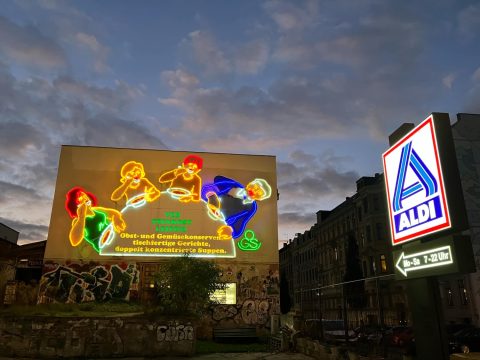Leipzig. The home of Johann Sebastian Bach, the peaceful protest that brought down East Germany and Claire Burger’s iconic pen pal romance Foreign Language (2024).
For as long as I’ve lived in Berlin, Leipzig has been touted as the new and improved version of the German capital. If the logic follows, perhaps DOK Leipzig Film Festival, dedicated to documentary and animated films, is the new Berlinale. Part of the Doc Alliance alongside CPH:DOX, Doclisboa, Visions du Réel, Marseille, Docs Against Gravity and Jihlava, Leipzig’s notoriety has grown in recent years, finally prompting me to jump on an ICE and check out what the festival has to offer.
And while I can’t boldly make any comparisons during my first ever day at the festival, I must say I am quietly impressed by the programming, especially in the shorts selection, with each work honing in on separate parts of the body, holding it up to the camera, scrutinising it in detail, hoping to capture a glimpse of the whole.
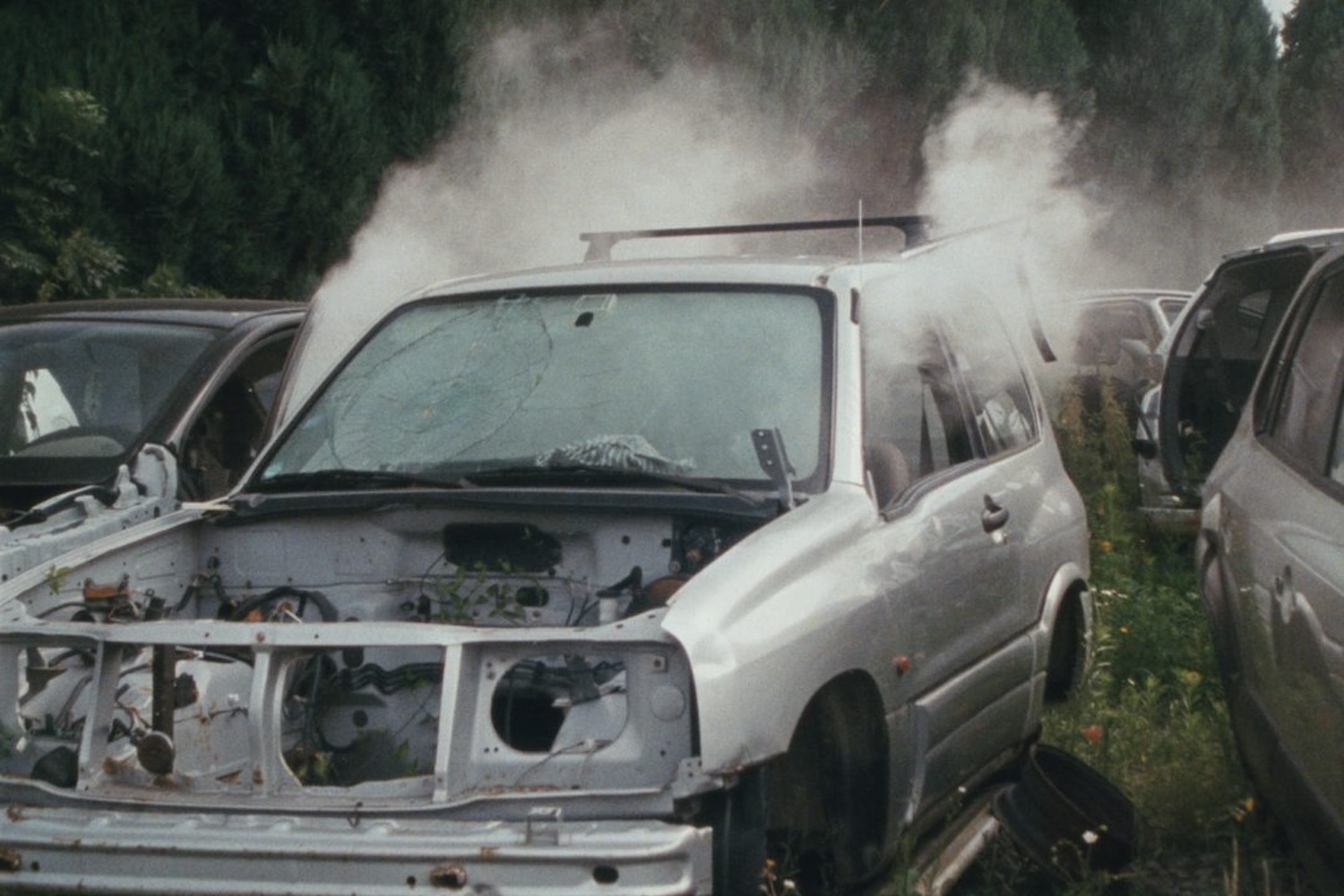
Feminine Bodies
The day starts off at Cinestar, where the festival’s programming competes against a (probably racist) German comedy named Old White Man (Simon Verhoeven, 2024) and the latest Venom movie. I’m here for Körperpolitik (body politics), an expertly curated selection of six documentary and animated shorts that are all about women’s bodies — how they are policed, how they transform, how they can be nightmarish, and how they can be tools or resistance.
We start with Camille Vigny’s Crushed (2024), which, annoyingly, was the best film of the day — setting the bar impossibly high for everything else to follow. Using gorgeous film stock and shot during the summer, when everything shimmers and shines, she captures the ins and outs of a stock car event; moving between the smashed-up cars lying in the parking lot and the race itself, even going so far as to shoot inside a machine as it totals, spins over and eats dirt.
There are attendees at the race, but Vigny rarely goes for full-frame shots, capturing the back of necks, legs and arms. This mechanical and brutal world serves as the perfect metaphor for her narration, telling of how she fell in love at 18 with a wonderful-seeming boy, who would later go on to reveal his alcoholism and beat her mercilessly. A chilling marriage of image and sound.
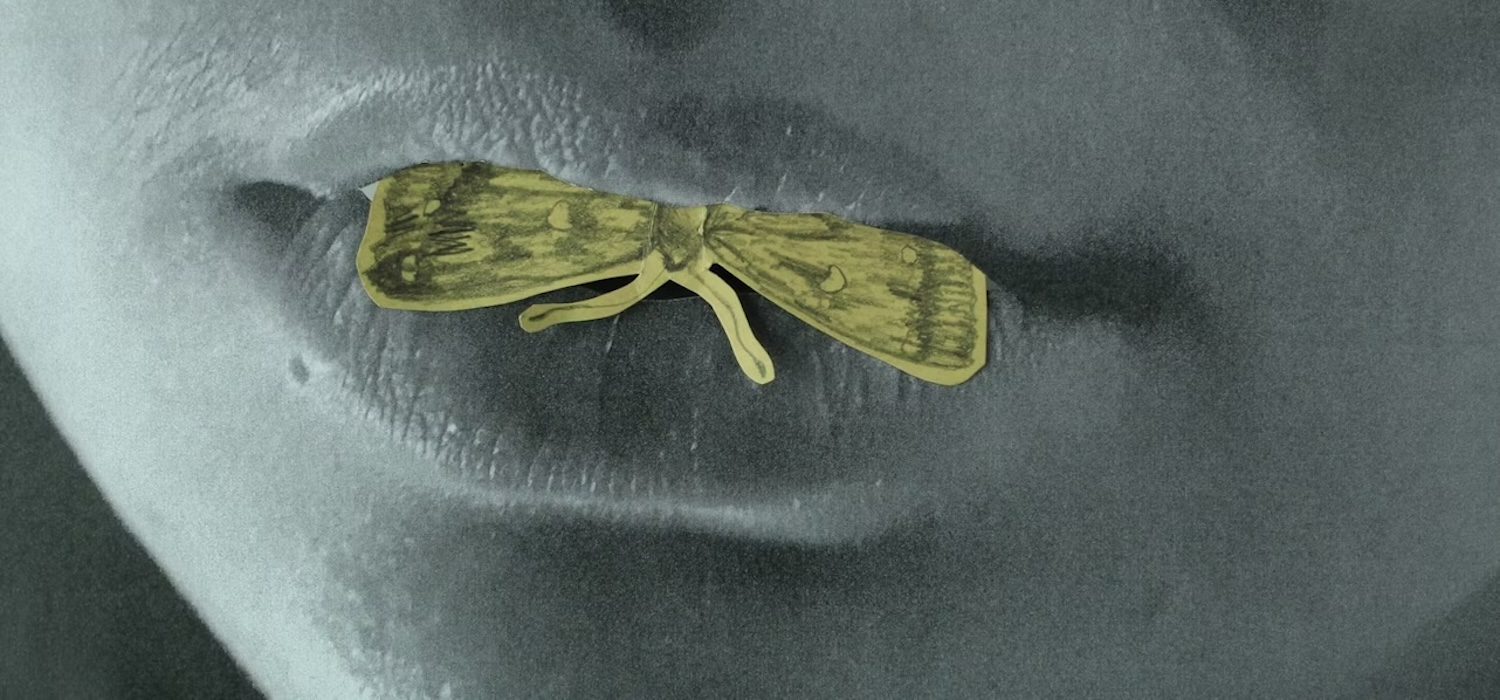
You Are The Truck and I Am The Deer (Max Ferguson, 2023) continues this feeling of discombobulation mixed with feminine anger, presenting a cavalcade of images that mix animation with live-action shots, poetic voiceover with ambient techno noise. The second Belgian film in a row, it impressed with its constantly shifting, unstable use of art collage, the mantra-like repetition of the phrase “I was made to be devoured”, and the potent animated image of a bleeding avocado. Created in the wake of a breakup, it seeps with unsettled rage.
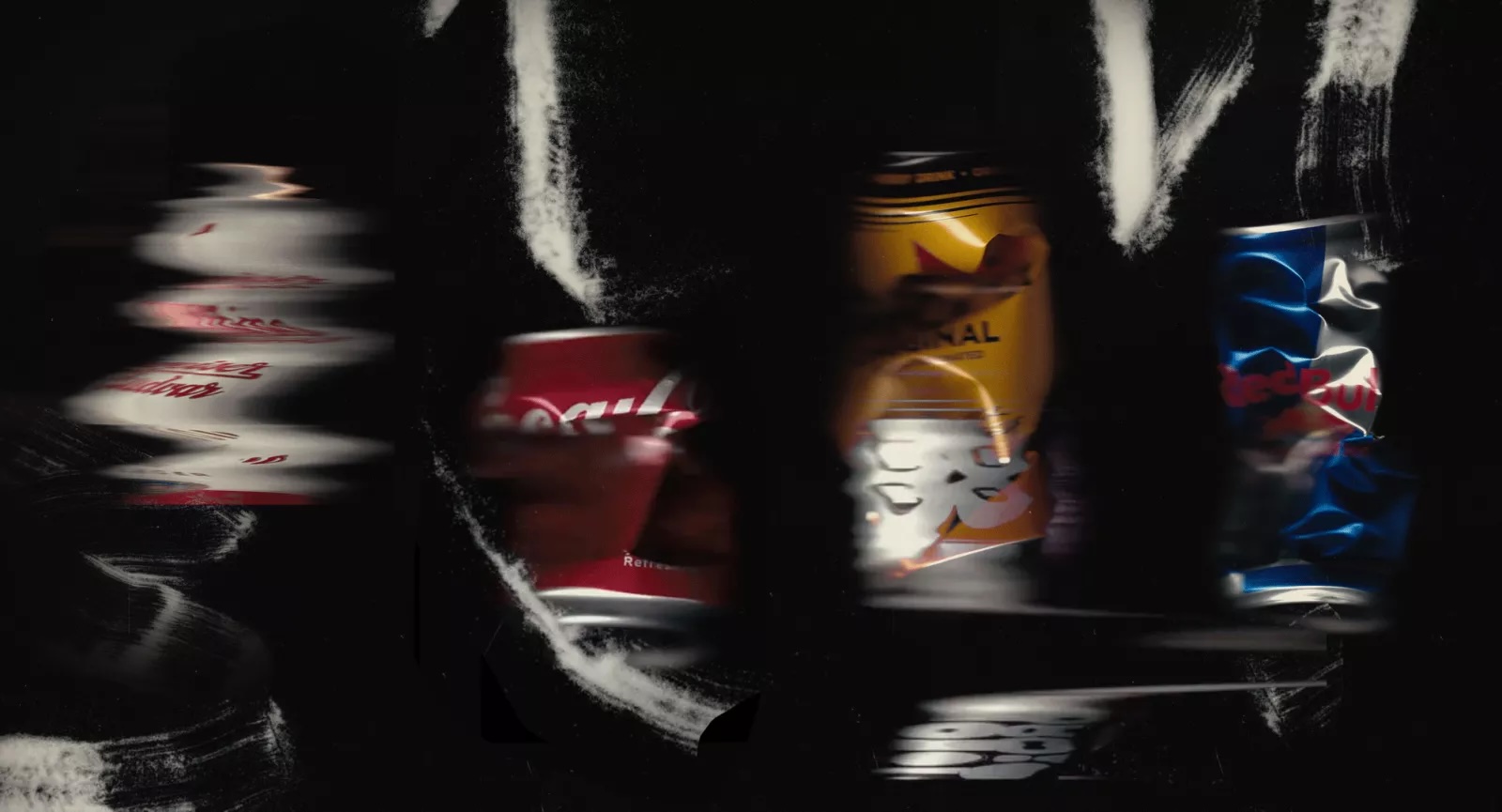
Hun Tun (Magdalena Hejzlarová, 2024) continues with a similar aesthetic, situating the female body within the realm of Taoist myth. The original Hun Tun is a chaotic being responsible for the world’s creation; faceless, unintelligible and as smart as a child. Hejzlarová places this legend within a young girl in the Czech Republic suffering from insomnia, also mixing live-action and animation to immerse us into the hell of not being able to calmly drift off.
Particularly interesting is the use of scanner techniques, whereby an image, such as a Coca-Cola or Red Bull can, is scanned in a dark room with the lid off before this same image is superimposed onto the live-action screen with all the attendant glitches and waves left in the frame. The effect truly pops off the screen. While I was lost by the end with all the costumes and the dancing, I appreciated the innovative way it shows how we are all kings of our own little empires.
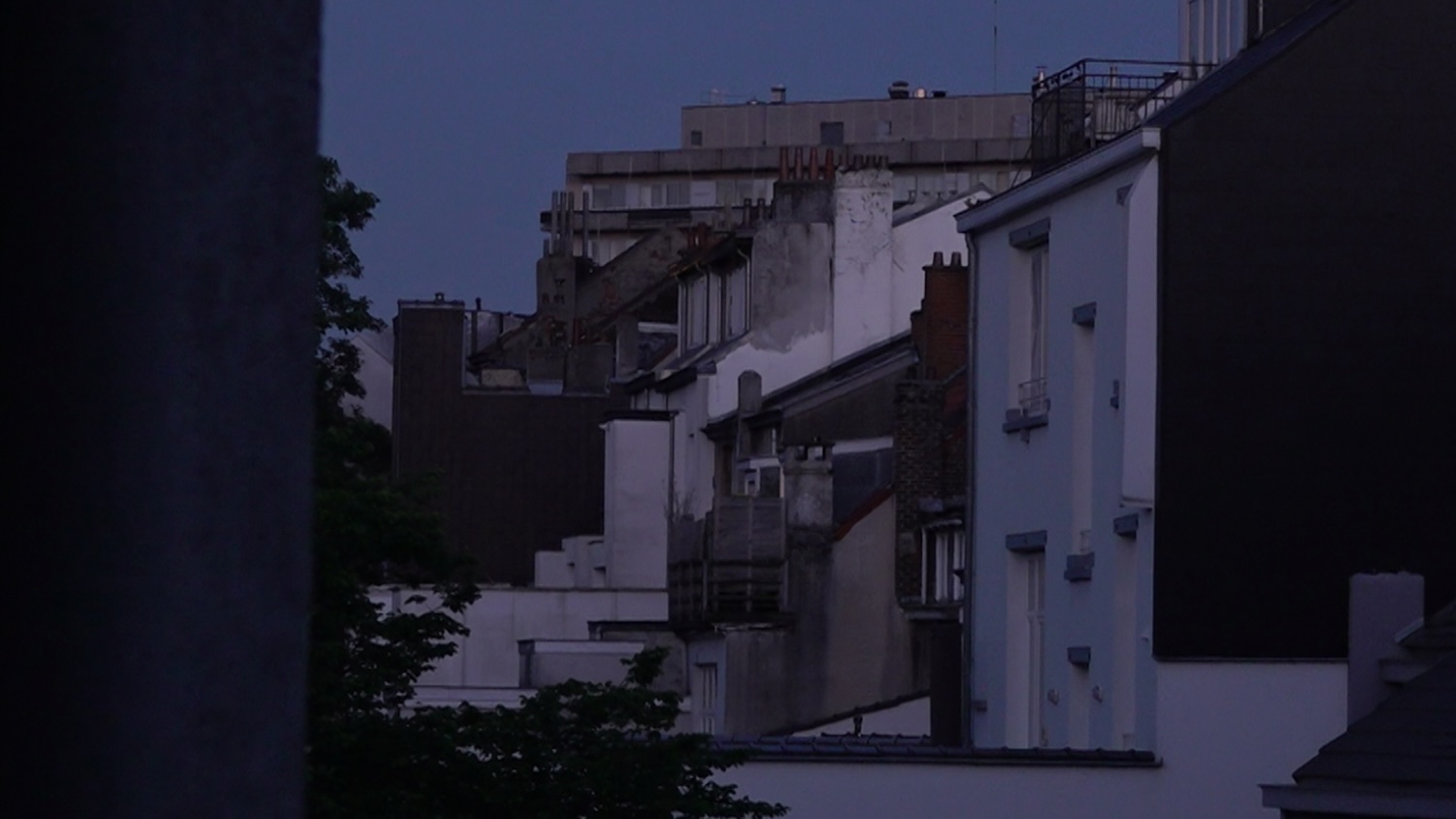
We return to far more serious territory with I Stumble Every Time I Hear from Kyiv (Daryna Mamaisur, 2023), which is far too disjointed to make the impact it needs. A mixture of Daryna’s voice therapy in Brussels, far away from Kyiv under Russian bombs, whereby words such as “wound” are constantly repeated, with her friend’s Telegram messages, sharing images of the city’s chestnut trees or her boyfriend or her playing piano, it never quite finds a way to make these two elements gel. Evidently, it wanted to represent how the reality of war, whether at home or abroad, can create a feeling of intense unreality, but it suffered from a lack of captivating images.
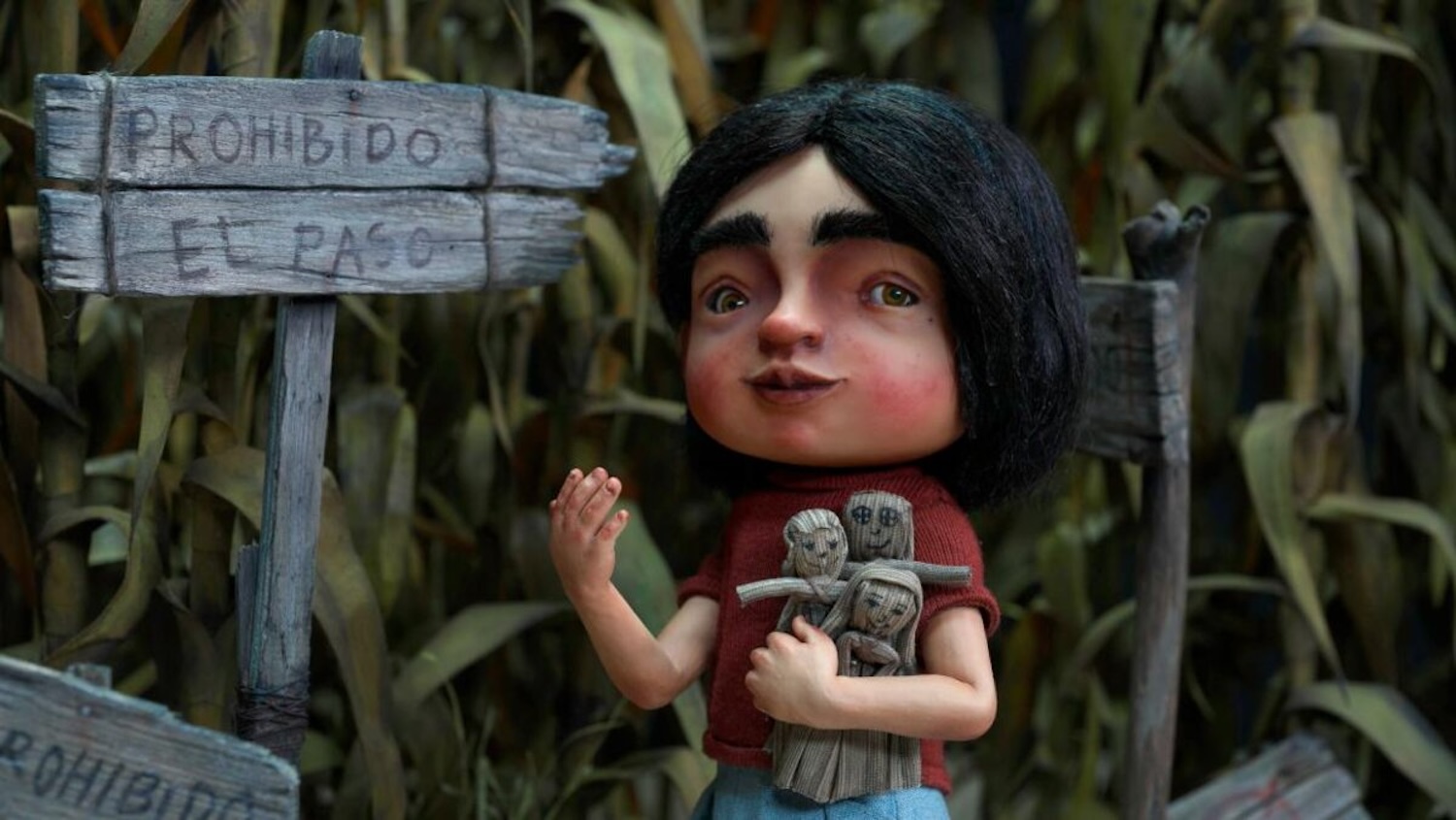
I wrote down “Del Toro” when watching the animation Dolores (Cecilia Andalón Delgadillo, 2024), a quintessentially Mexican exploration of death and the afterlife that is filled with gothic energy and an eye for the macabre. It turns out I was right, as at the Q&A, I learned that many members of the Dolores team actually had worked on Guillermo del Toro’s Pinocchio (2022). Using puppet animation throughout, it tells the story of a seven-year-old girl who walks into a forbidden field and falls into the lure of two skeleton witches. While its conventionality made it feel out of place amongst the other shorts, I appreciated that it’s the rare fairytale that fully commits to the inherent malevolence of the genre.
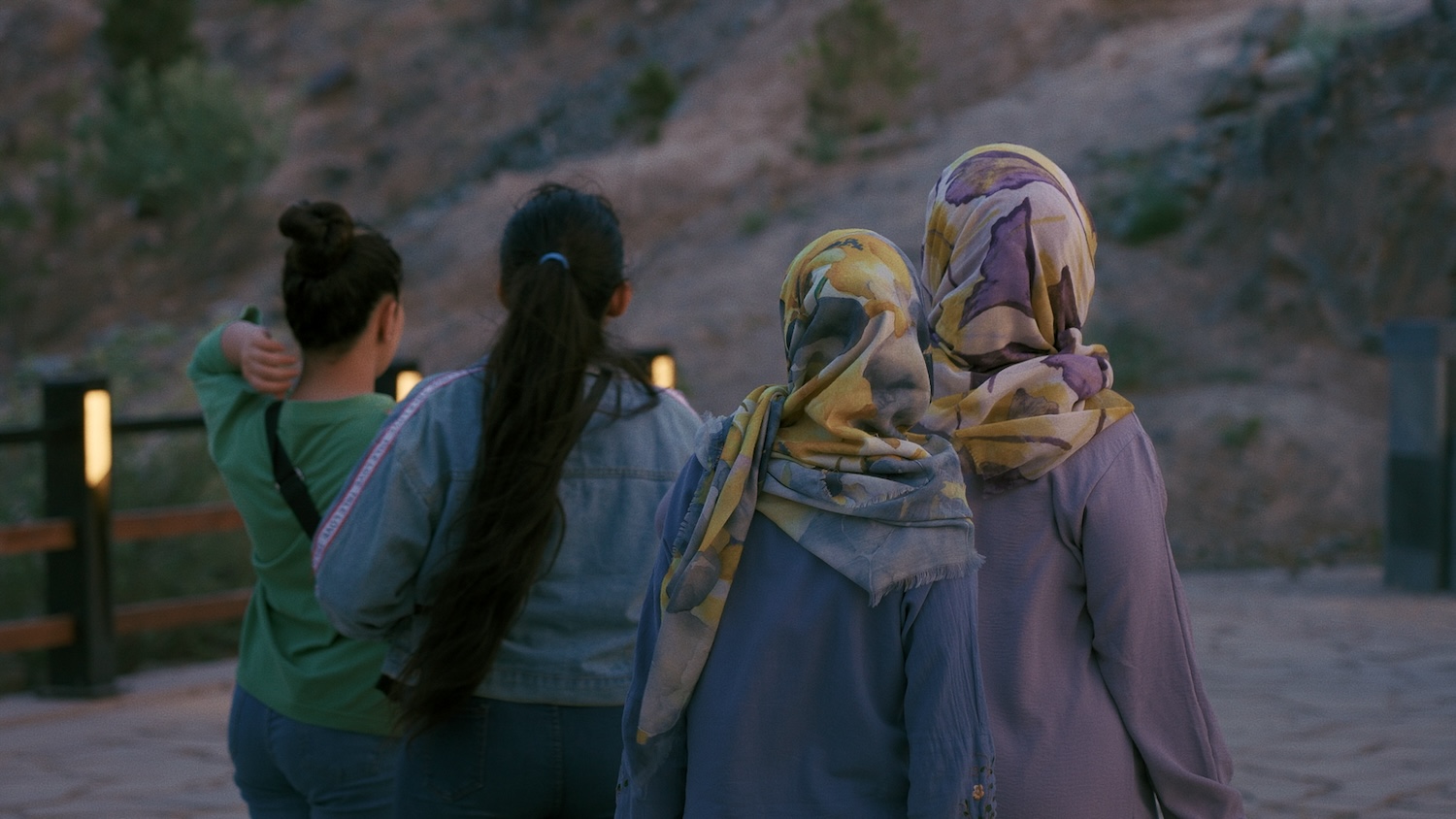
Putting A Move (Elahe Esmaili, 2024) last was a smart choice. While the previous five films presented feminine problems, A Move is a glorious exploration of a genuine solution. The Iranian director returns to help her family move and then goes to a garden party to celebrate the end of Eid. But much to her grandmother and father’s dismay, she has decided not to wear a hijab. Or a cap. Or anything that covers her hair whatsoever.
Over and over again, she is told that she is bringing shame on her family, or she is embarrassing herself, and she keeps calmly saying that she will not cover her hair. And, perhaps unsurprisingly, over the course of the day, everyone eventually gets over Esmaili’s personal choice, resulting in a deeply felt reflection of what it means to live in a society that is over-obsessed with the way that a woman presents herself and how small gestures can be the start of meaningful resistance. Politics starts at home.
With so much on offer about the way women represent themselves and how they can break free of masculine expectations, this was easily one of the best short programmes I’ve seen in a cinema. It felt particularly relevant as the USA’s upcoming referendum on abortion — i.e. the 2024 election — is just around the corner.
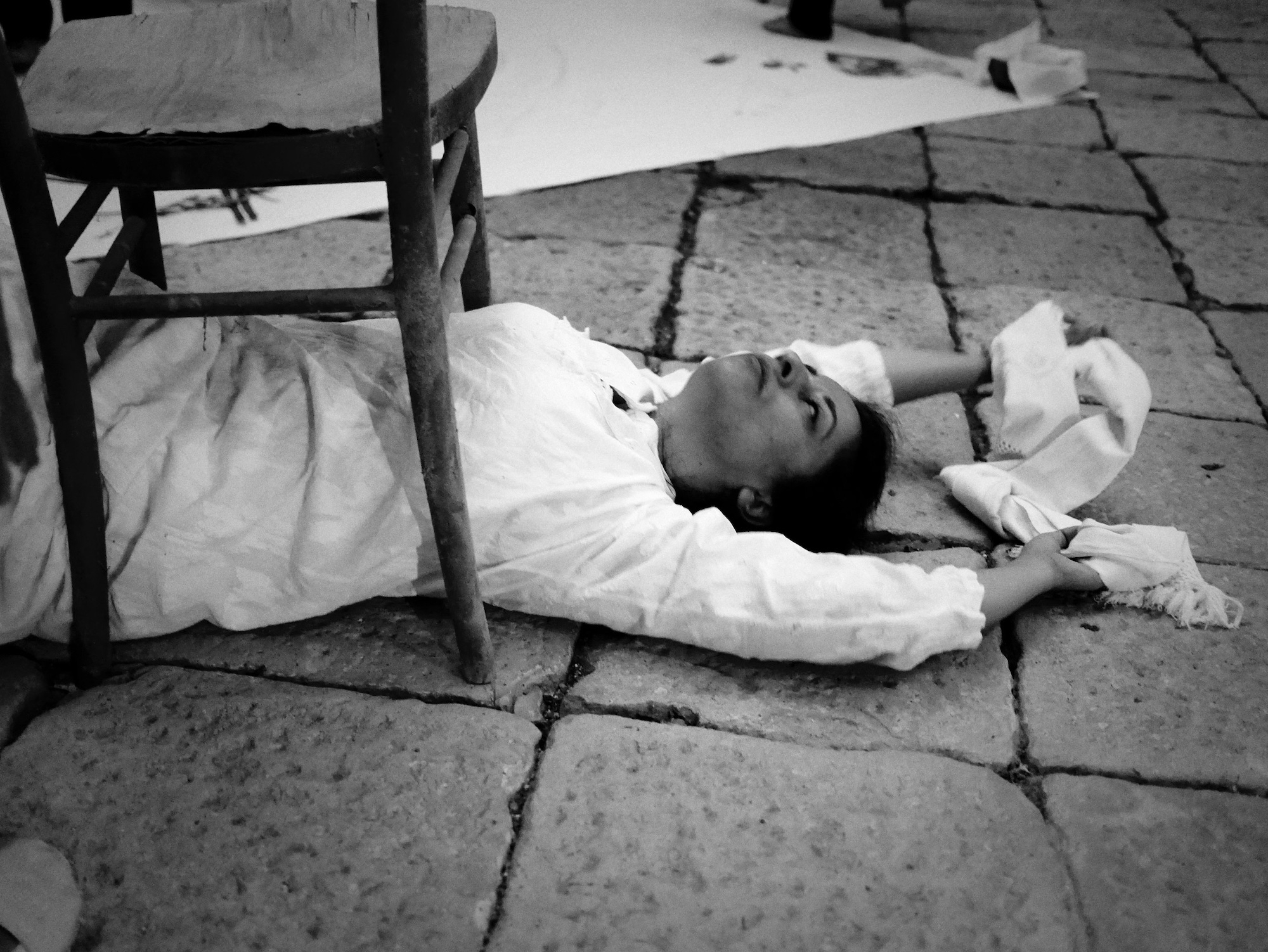
Are We Human, Why Are We Dancer?
Staying at Cinestar, German competition entry Tarantism Revisited (Anja Dreschke, Michaela Schäuble, 2024) continues the feminine focus of Körperpolitik, diving deep into the dancing mania that swept Puglia in the 1960s, whereby women would be supposedly bitten by a tarantula and would have the unbreakable urge to dance. Here women break apart from all unconventionality, convulsing, writhing, shaking, lying on the floor, all the while never losing their sense of rhythm. Inspiring tarantella music and folk dances, it is an intangible part of Southern Italian heritage — as well as one of its biggest mysteries.
Through a mixture of archive footage and on-the-ground reportage, epistolary voiceover and long takes of contemporary dances, Dreschke and Schäuble’s documentary is less interested in answering why these women suddenly have the urge to dance — no scientists or experts appear — than in exploring the various sociological textures of the region, an often-forgotten part of Italy described here as “The Land of Remorse.”
I couldn’t help but think of William Friedkin’s The Devil and Father Amorth (2017), which was a documentary portrayal of a real-life exorcism, and how both exorcisms and tarantism predominate in the same highly superstitious country, with religious ceremonies the “solution” to both “problems.” And just as so-called possessions by the devil are probably a more literate form of schizophrenia or epilepsy dressed up in Catholic hocus-pocus, this sudden urge women have to dance has likely come either as a result of intense exhaustion from toiling in the tobacco fields or a convenient way to avoid work or marriage. But by never answering these questions and constantly complicating the mystery, Tarantism Revisited weaves its own rapturous, hypnotic spell, providing an exhausting Talmudic exploration of almost everything but the truth itself.
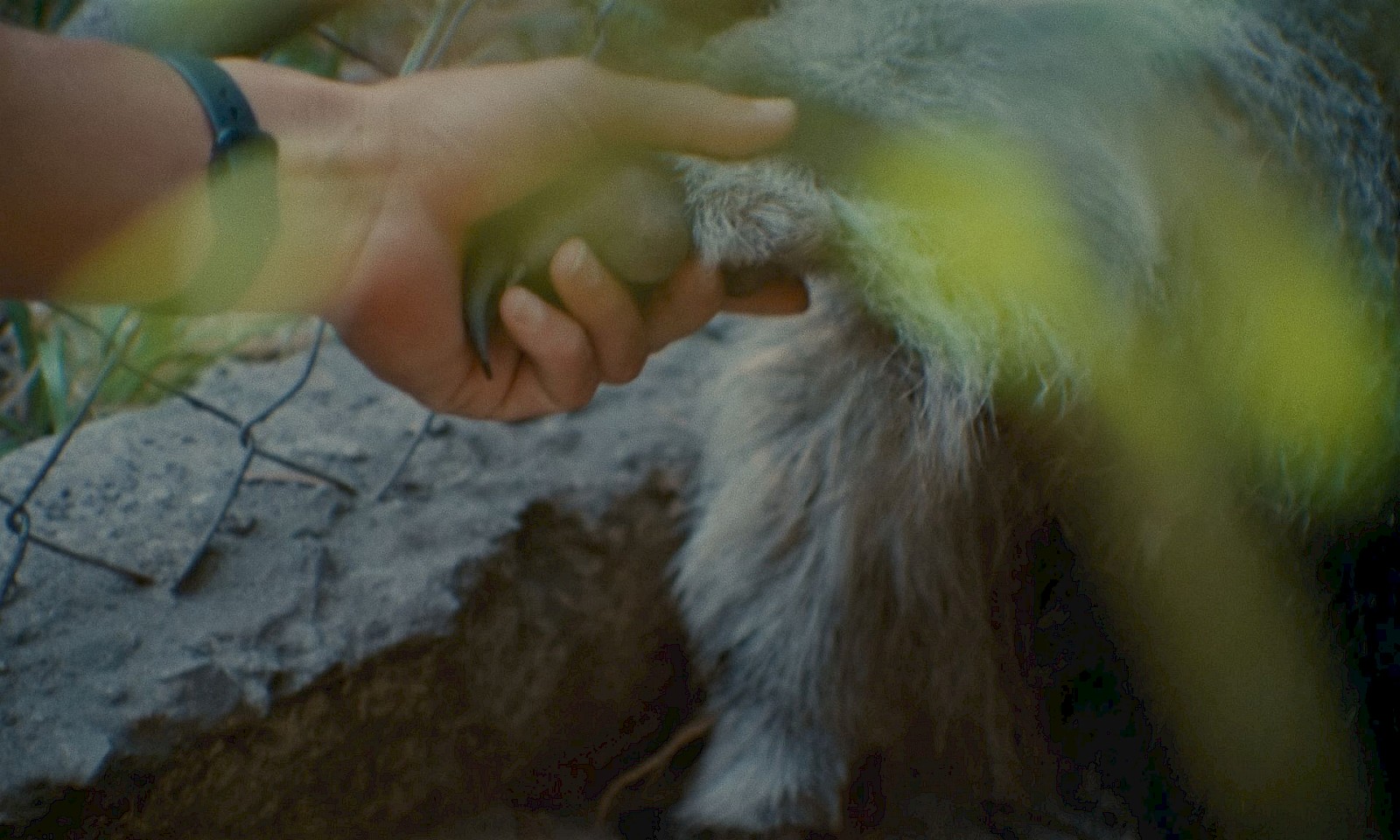
We Sold A Zoo
After two programmes at Cinestar, I walked down to the naTo, a smoky bar with a small screen in the back. This felt far more homely, a more appropriate venue for challenging, artsy cinema. For slow films like competition entry Collective Monologue (Jessica Sarah Rinland, 2024).
The popular consensus now is that zoos are probably inhumane and unfair to the animals. But at the same time, the people who run zoos are smart, passionate and caring (Matt Damon, Scarlett Johansson, etc). In this film, filmed across institutes in Argentina, the zookeepers are constantly checking on their animals, whether it is macaws or anteaters, making sure that their diets are varied, their stools are solid and their moods are managed. Rinland gets us up and close with these people and their exotic cares, creating a meditative exploration of animal life and the difficulty of running a zoo.
Collective Monologue is similarly exhaustive to Tarantism Revisited, taking us through all the types of creatures that make up a zoo. We meet elephants (the camera up close and personal into their trunks and mouths), flamingos (bunched together and acting like a hive mind), tortoises (the camera moving as slow as they walk) and monkeys (constantly begging for more food). The camera is careful to isolate animal parts, make them seem larger, create a more alien and odd feel, as if we are seeing them for the first time. But we also, perhaps unnecessarily, see the tiniest of details when it comes to renovations, including people fixing the wiring of the building, washing the floors, rebinding books. By the end of this film, you may actually have enough tools to start your own zoo.
There’s a touch of Wiseman in Rinland’s maximalist naturalism here, presenting various subjects while allowing us to draw our own conclusions, never having anyone talk to the camera or act as if they are performing a particular character. She also uses the Wiseman trick of having a subject reveal important information to another subject as a way of telling the audience more without sacrificing this realist feel. Buenos Aires Zoo itself is now an EcoPark, reflecting the growing trend for a more ethical treatment of exotic animals. But rewilding animals can be rather difficult, with many of them missing the creature comforts of a more structured environment. Freedom is different for everyone. That includes animals too.
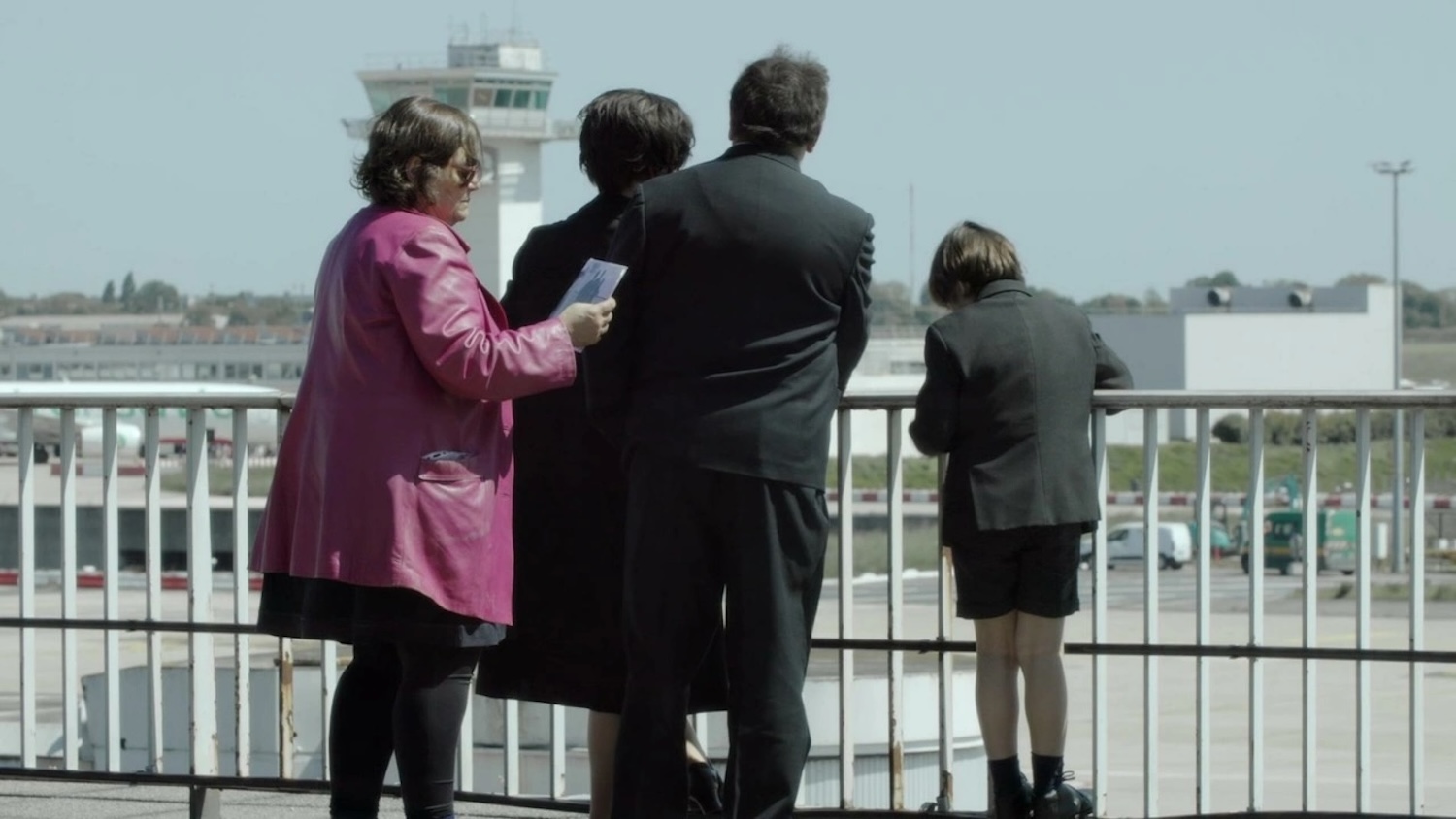
Jetting Off
I ended the day at the Regina Palast, deep within the hip Reudnitz district in the east of the city. It’s a cosy independent with narrow hallways, massive buckets of popcorn and small screens, the perfect sweet spot between a single-screen space and a massive multiplex. The kind of cinema cities need more. The kind of place perfect for a movie about a movie.
La Jeteé (Chris Marker, 1962), composed almost entirely of still images, is arguably the most famous short movie of all time, a gorgeous time-travel tale that retains the ability to mesmerise the viewer. But what about the fifth shot? You know the one, a couple and their son, leaning on the railing, gazing into the distance. Well, as it turns out, that fifth shot, as explored in competition entry La Jeteé, The Fifth Shot (Dominique Cabrera, 2024), contains an entire film’s worth of mystery and intrigue.
We cannot see the people in this picture. Their backs are turned to us. But six decades after this picture was taken, Cabrera’s cousin is convinced that this image is of him and his parents. Thankfully, Dominique is instantly on the case, prompting a journey back to the early 60s, a time of innovative filmmaking, the aftermath of the Algerian war, the return of the Pieds-Noirs (French people who fled Algeria) and endless family secrets. Even the most touted and timeless-seeming works of art are grounded in the realities of their time.
Told with great affection for Chris Marker’s work and with a detective’s eye for detail, this excellent and beguiling doc is not only a must-watch for French New Wave enthusiasts but a fascinating exploration of how just one image can change a family irrevocably. And while the film may go slightly off-track near the end, the final revelation may change the way we think about Marker’s masterpiece forever. A fine end to a long and satisfying day.
Read part two here.
Redmond is the editor-in-chief of Journey Into Cinema.
